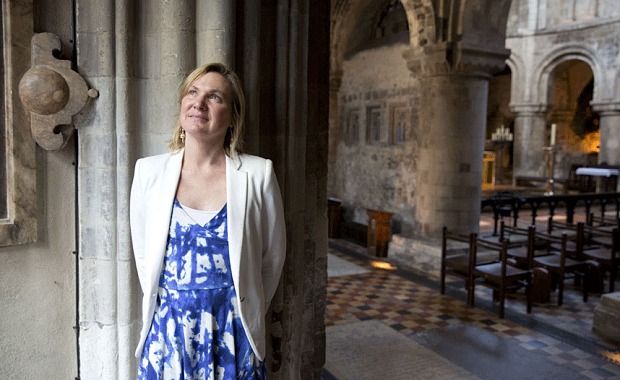Mindfulness is all the rage right now, but what, if you don’t mind, does mindfulness actually mean?
The subtitle to a new book on the subject, How to find calm and contentment in the chaos of the city, gives us a hefty clue. Calm and contentment? Sounds good. So what better place to meet the author, Tessa Watt, than central London at rush hour, a time and location that is guaranteed to be chaotic?
My plan to rigorously test Watt’s methods in this hostile environment backfires, however. By the time she whisks me off Oxford Street, away from the hordes of commuters and tourists who I just know are out to ruin my afternoon, and up to a favourite hotel bar to continue the interview, only one of us is calm and content. And it isn’t me. I should have known better – keeping her head when all about her are losing theirs is Watt’s speciality.
“Without consciously registering it, we find ourselves in a state of irritation,” she says as we look out from the top floor of the St George’s Hotel over London’s sprawling, heaving mass of bodies and buildings
“There’s so much that irritates us. We’re irritated by the crowds, we’re irritated by the queues, we’re irritated by loud sounds, sirens and car alarms, and we’re irritated by traffic.
“And so, in those moments, it’s about how we can actually make a different choice and use those irritations in a different way, rather than going into this natural, habitual irritation.”
Secular mindfulness, Watt believes, holds the key to saving us from the purgatory of constant stress. Borrowing heavily from traditional Eastern religions, especially Buddhism, secular mindfulness involves a series of meditative breathing techniques, which, Watt writes in the introduction to her book, help people to be “in the present moment – right here, right now, without wanting it to be somehow different”.
Watt left her job as a radio producer for the BBC – “very stressful” – in 2006, when the secular mindfulness movement was beginning to flourish in Britain. She is now a full-time mindfulness instructor. “It’s becoming massive in workplaces,” says Watt. “It’s not counter-cultural, it’s more just about how can we find space and groundedness and balance within our hectic lives.”
Watt has recently become a consultant on the Mindfulness Initiative, which supports Westminster’s All Party Parliamentary Group for Mindfulness – an indication of just how popular the practice has become and how seriously it is being taken. It is easy to understand why. London’s young professionals are more stressed than ever, with the longest working hours in Europe, lower wages and increasing house prices. Depression and stress-related illness are also on the rise.
“I’ve found, just in the 25 years that I have lived in London, that the pace has changed,” Watt says. “I think everyone’s feeling that there’s something a little out of kilter and they’re trying to find something to balance that.”
I ask Watt why she thinks this generation of 20 to 40-year-olds – who make up most of her classes – are more stressed and miserable than other generations. Her answer is unequivocal. “Technology makes a huge difference, the whole idea that you have to be connected 24/7, that you can receive texts and emails in the middle of the night or when you’re sitting in the park. There’s just no ‘off’ button.
“Social media makes us all feel like we should be socialising all the time, active all the time, productive all the time.” Watt’s book, Mindful London, a beautifully produced guide to be dipped into rather than read in its entirety, offers suggestions on how to counteract this, how to appreciate what “is”, rather than what could be, going on around you.
While some of these are obvious – visiting more galleries, exploring parks, leaving more time to travel from A to B – others are likely to raise an eyebrow.
Most notable perhaps is the suggestion that the sound of a siren could, in fact, soothe us. “If the piercing sound of a siren cuts through your awareness, instead of letting it irritate you, try thinking of it as a wake-up call,” Watt writes.
“Use the sound as a reminder to take a pause, and notice the world around you.” With a healthy dose of scepticism, I push Watt on this point. Does she really, honestly, relish London’s inescapable soundtrack? “I have always hated traffic,” she says, laughing. “And then I realised that the traffic didn’t sound all that different from waves.
“It was not really, inherently, an awful sound, it was just that I made that association. But when you listen to it, it’s a perfectly pleasant sound.”
If this all seems preposterous, Watt is keen to point out that mindfulness can, and indeed should, be approached with a sense of humour.
“I’m not very fond of any holier-than-thou attitudes,” she says. “I don’t see mindfulness as some kind of po-faced, goody-goody philosophy. It’s just giving you the ability to be aware.
“There’s no way this city is going to slow down anytime soon, so this is the way we can do it as individuals.”
And with those words ringing in my ears, I have to rush off across London to meet some friends for drinks. I had almost forgotten – but Facebook reminded me.
From: The Telegraph

